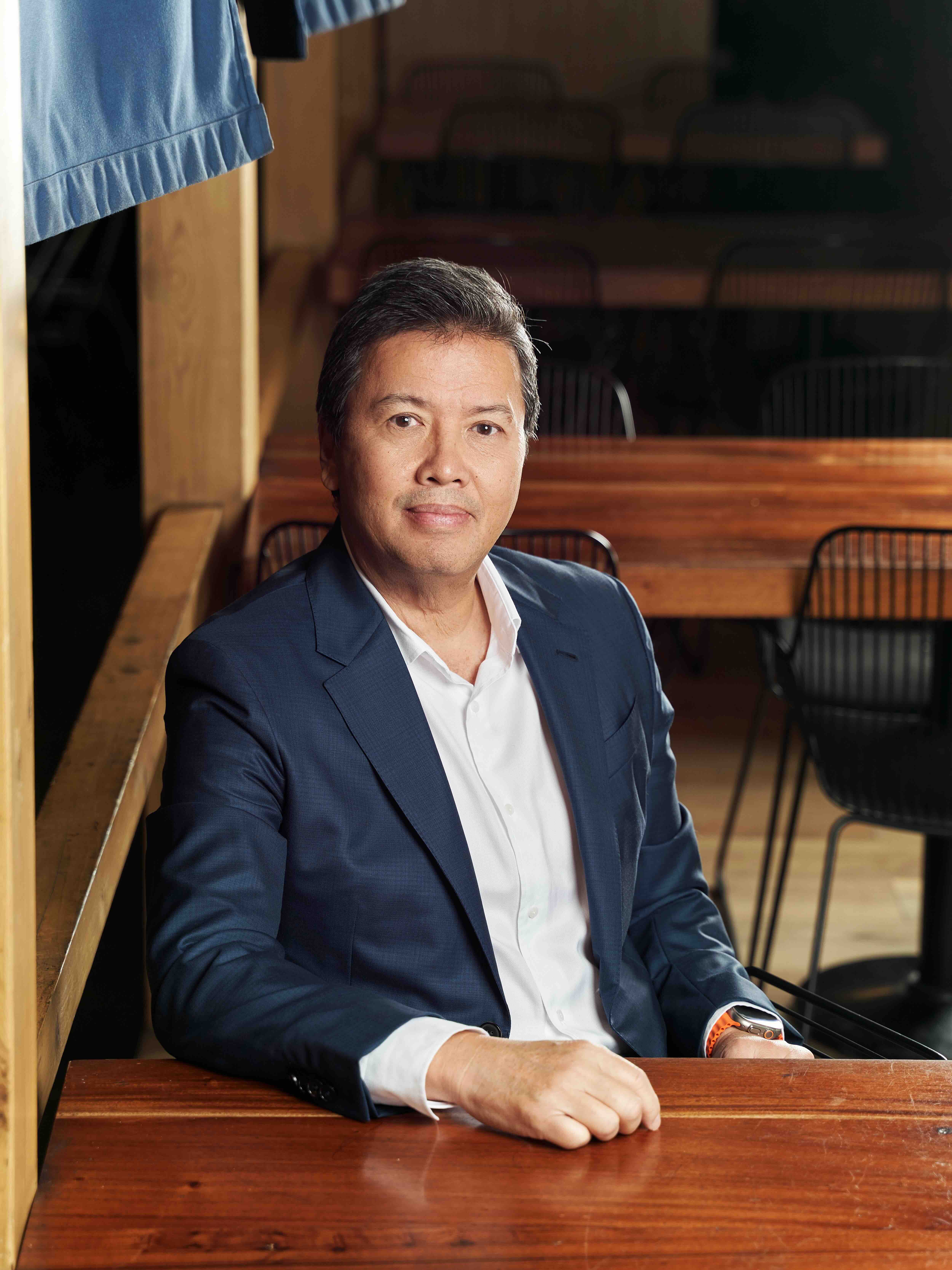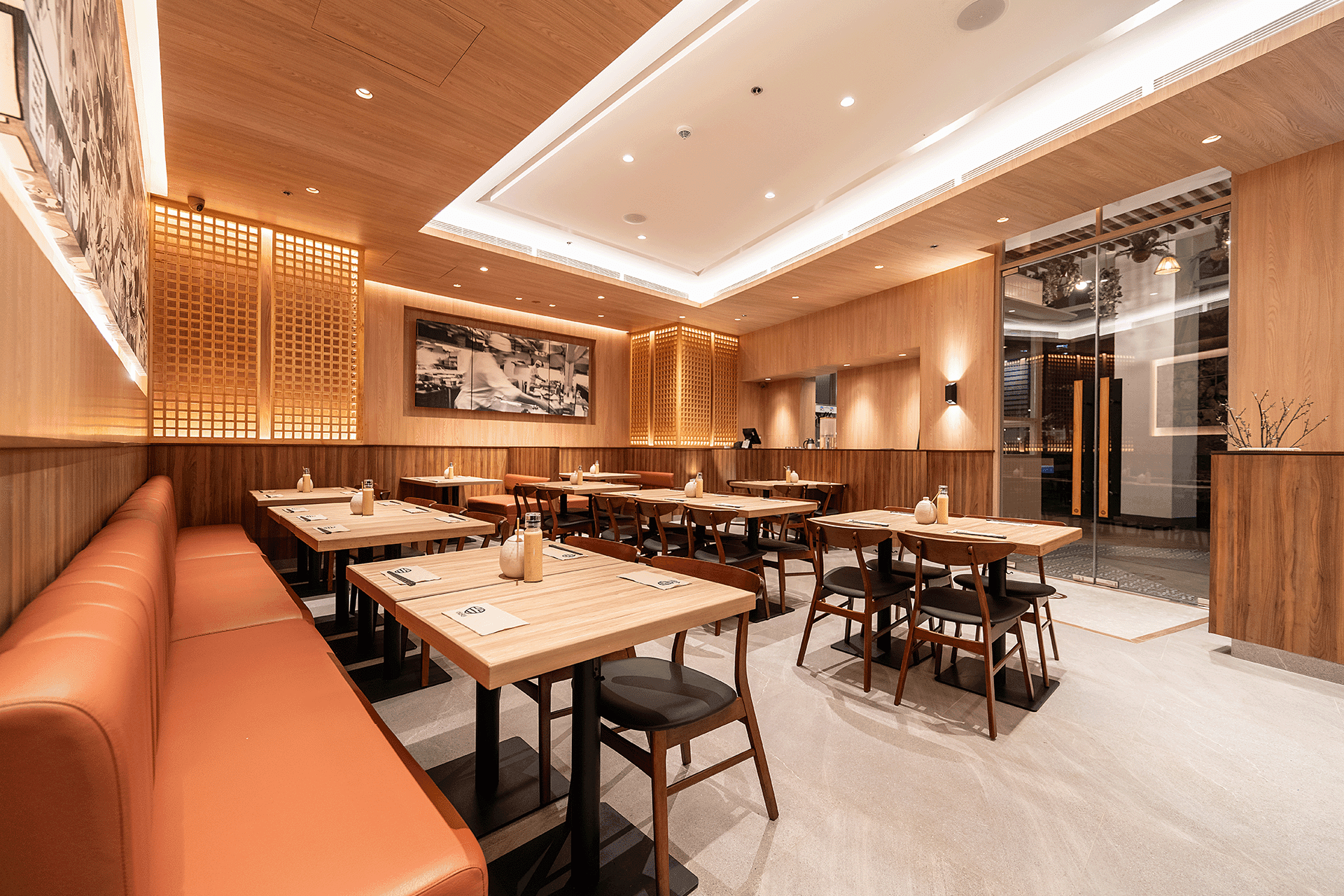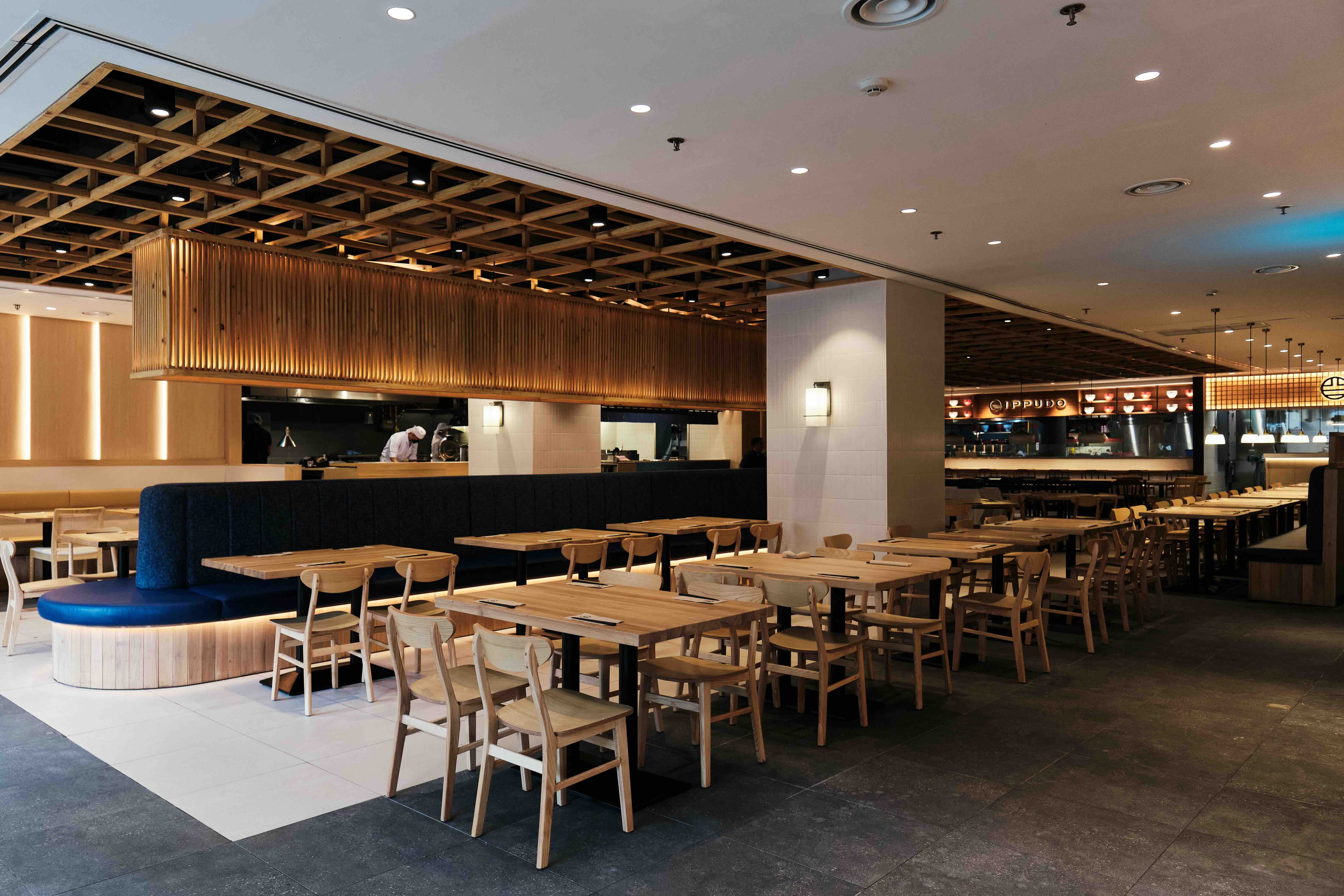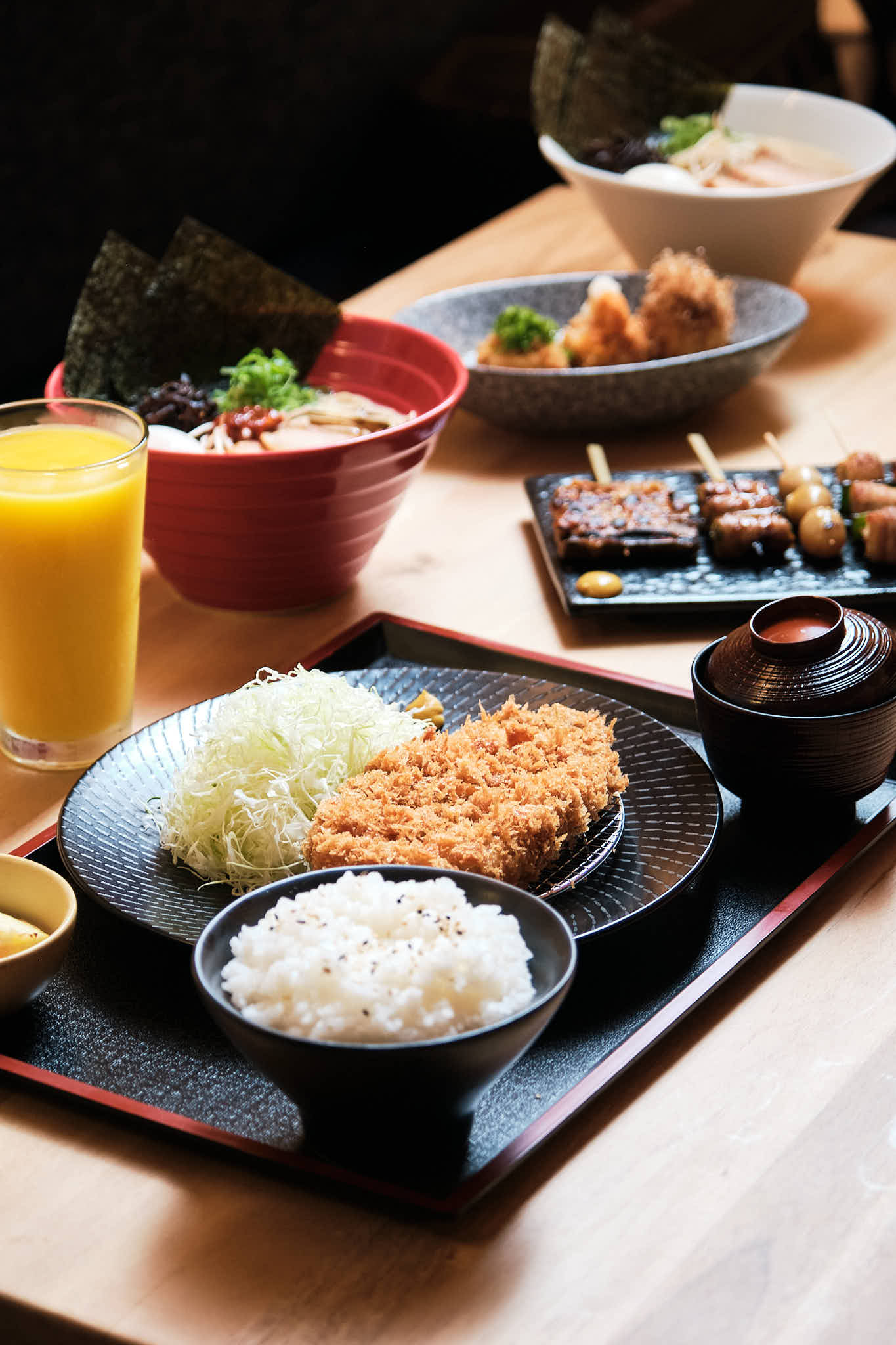John Concepcion's journey from ice cream to creating innovative dining concepts
A journey from ice cream to tonkatsu

Few people know that the person behind the iconic Selecta ice cream brand is also steering the growth of some of the Philippines' well-known dining establishments.
After decades in the frozen dessert industry as managing director and CEO of Selecta, entrepreneur John Concepcion retired from the company this year, shifting his focus to his other brainchild, The Standard Hospitality Group (SHG).
“I've spent 33 years running Selecta. We bought the business when it had less than 1 percent market share, and we grew it to become the biggest name in ice cream in the Philippines,” John shared with the Manila Bulletin during an interview at his Kiwami Food Hall branch in BGC. Despite this success, he chose to pursue a new challenge, moving into the restaurant industry, which piqued his interest after a trip to Japan.

The house that katsu built
“We fought many battles against big players like Magnolia and Nestlé, and fortunately, we did well. It was 33 years of hard work, and the business continues to grow. When I turned 50, I decided I needed a new challenge, and that led me to Japan, where I became fascinated with Japanese food. That’s when I thought about creating this specific restaurant concept.”
That concept was Yabu House of Katsu, and in 2011, it introduced diners to a novel concept: a specialized restaurant laser-focused on one dish. For Yabu, that dish was katsu, a Japanese word short for katsuretsu, meaning “cutlet.” The popular dish tonkatsu is a combination of katsu and the Japanese word ton, which means “pork.”
Tonkatsu is a dish of breaded, deep-fried pork cutlets often served with tonkatsu sauce, cabbage salad, and steamed rice. This combination was an instant hit with Filipinos in 2011, and now, Yabu is a ubiquitous brand across the islands.
“When you travel, you always find opportunities or identify problems that need solving. That’s what happened 12 years ago when I noticed there was no katsu restaurant here, so we created Yabu. Back then, everyone was saying it had to be a generalist concept, but I believed in being specific, and it worked,” John said.
After the success of Yabu, he introduced the globally acclaimed ramen brand Ippudo in 2014. Following Yabu’s formula, Ippudo focused on ramen. Today, SHG operates six international brands: Yabu, Ippudo, Kiwami (including Hannosuke and Hachibei), and Elephant Grounds.
This year, the group is set to open even more stores, an ambitious plan driven by strong brands like Yabu and Ippudo. He refers to this next phase of growth as "SHG 2.0," aiming to offer more elevated dining experiences that focus on ambiance, food, and craftsmanship.
The entrepreneur sees the evolving taste of Filipinos as both a challenge and an opportunity. "Filipinos love food, especially Japanese cuisine," he said, noting that malls, the country's social hubs, are where many dine. He believes that the key to success lies in creating a complete experience—food, service, and ambiance—and that his brands are well-positioned to meet the demands of an increasingly discerning market.

Shifting trends
“Trends have changed since then. For example, ramen is now everywhere,” John continued. Enter Kiwami, a food hall with different merchants, where diners go to each station to order, have the food served to their table, and then pay.
“The problem we saw with typical food courts is that you have to go to each place to order and pay separately. With Kiwami, we thought, what if we ran the whole thing instead of handing it over to vendors? This way, you can order from anyone, get a full dining experience, and pay just once. It's a more cohesive, high-quality experience.”
With Kiwami, John maintains his vision of restaurants focusing on a single concept while offering different dishes to diners—four fully functioning kitchens in one hall, each focusing on a distinct Japanese dining concept. There’s Yabu, in partnership with Michelin Bib Gourmand chef Kazuya Takeda; Ippudo Ramen, founded by Shigemi Kawahara, known as “the Ramen King”; Hachibei, specializing in yakitori dishes cooked using Binchotan charcoal; and Hannosuke, renowned for its tempura expertise, rooted in tradition dating back to the 1950s.

The group currently operates 30 locations, including nine Ippudo, two Elephant Grounds, two Kiwami (one in BGC and one in Alabang Town Center), and 17 Yabu restaurants. They are also set to open two new Yabu locations and another Kiwami location soon.
As SHG continues to expand, John is focused on strengthening the company's foundation. Digital transformation, codified systems, and a solid shared services model are essential to supporting rapid growth. His philosophy for 2024 is to build this foundation before expanding too quickly, ensuring that the company is prepared for the challenges ahead.
“Right now, we're focused on Japanese cuisine because there's still so much opportunity there. But we're always exploring and experimenting, working with foreign chefs and considering new concepts that we can introduce,” John said. He explained the excitement of bringing Japanese culinary concepts to our shores. In Japan, the cuisine remains deeply rooted in tradition and rarely deviates from its origins. However, he notes that Japanese cuisine outside of the country tends to experiment and incorporate new ideas.
“Japan is very traditional, but outside of Japan, you'll see more modern takes on Japanese cuisine, which is quite exciting. It’s about balancing tradition with innovation, which is what we're aiming to do with SHG 2.0.”
This dedication to quality and innovation has been the hallmark of his career. From growing Selecta into a household name to creating unique dining concepts like Kiwami, which brings together Japan's top dishes under one roof, his ability to identify and capitalize on opportunities is evident.